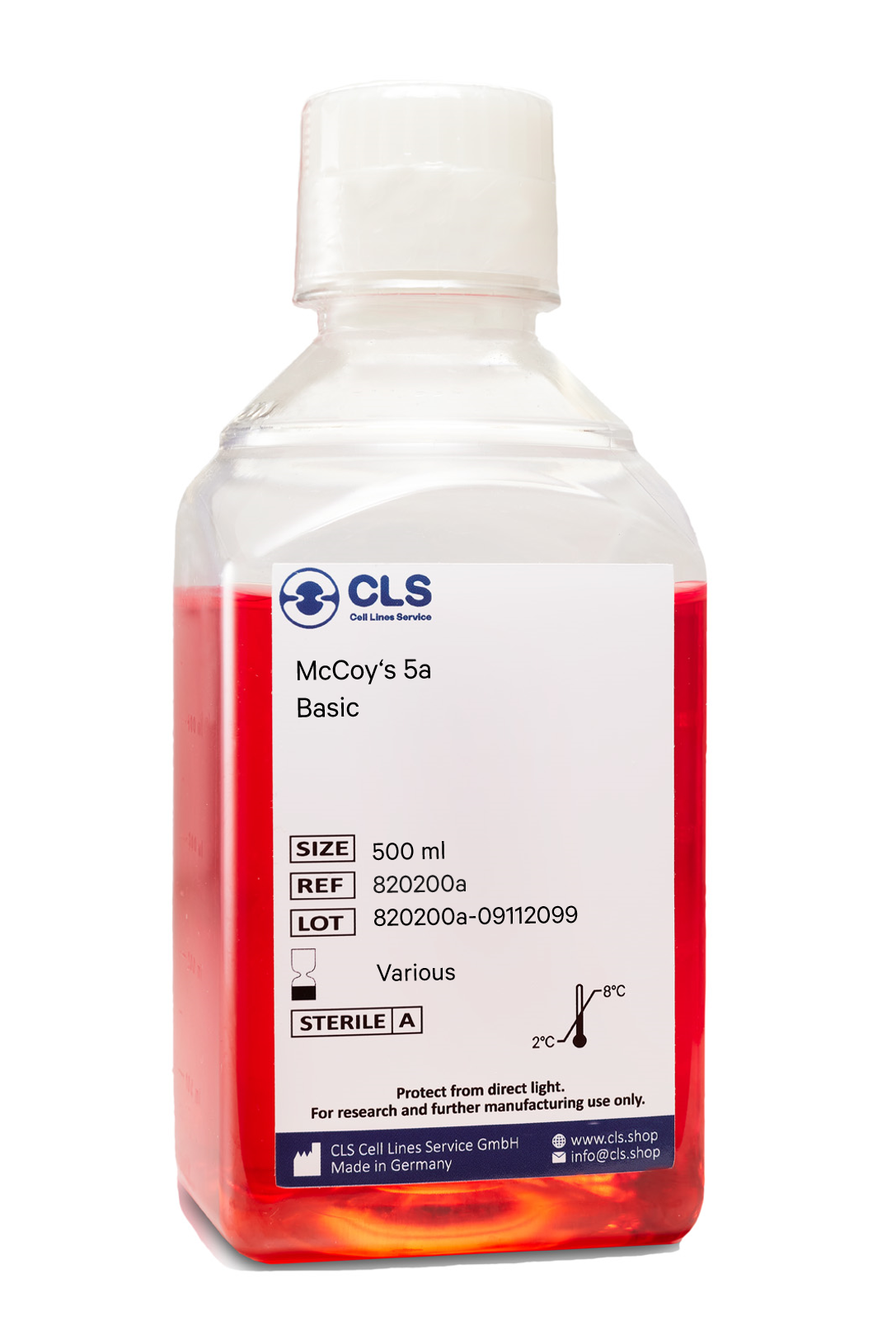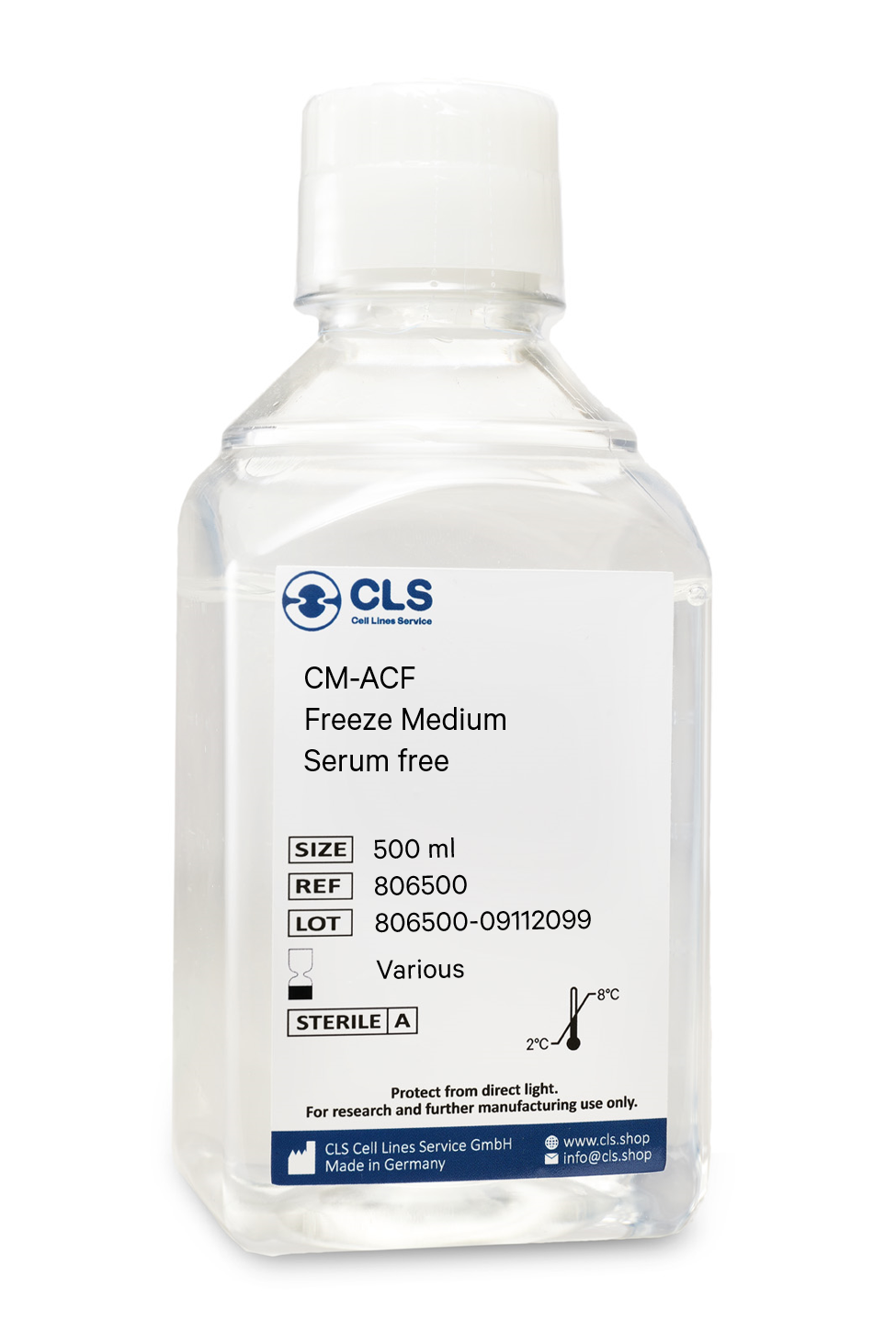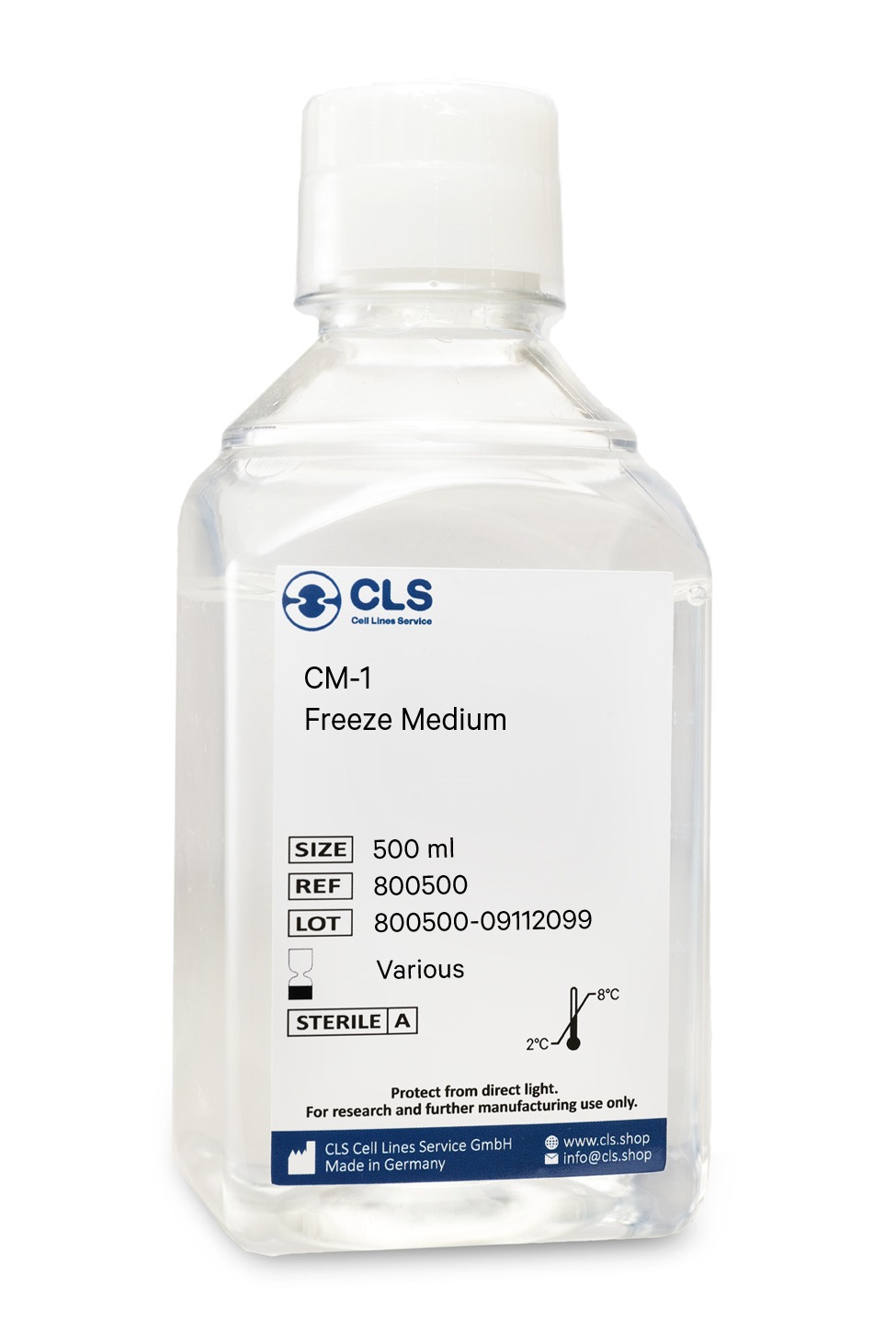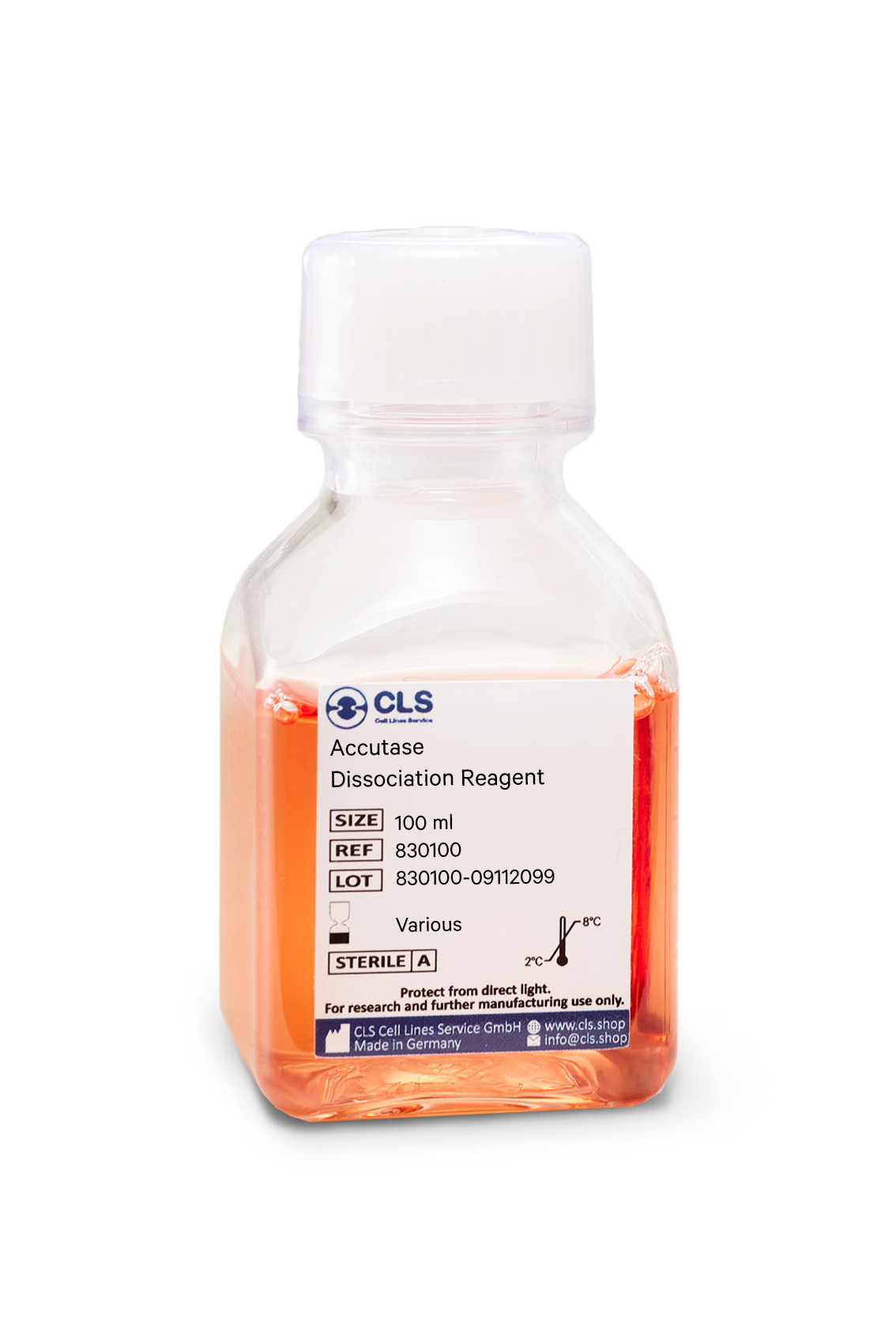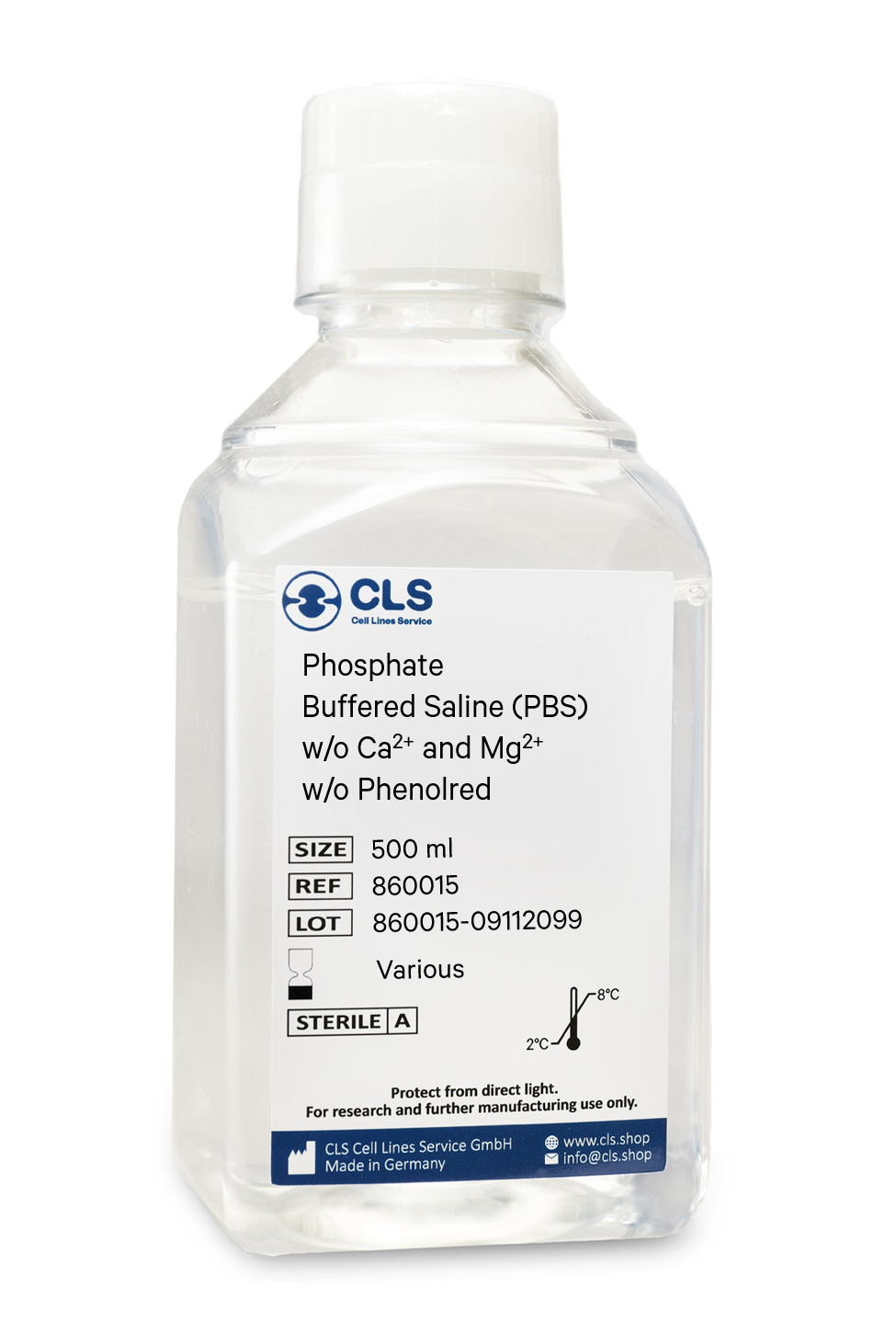Capan-2 Cells
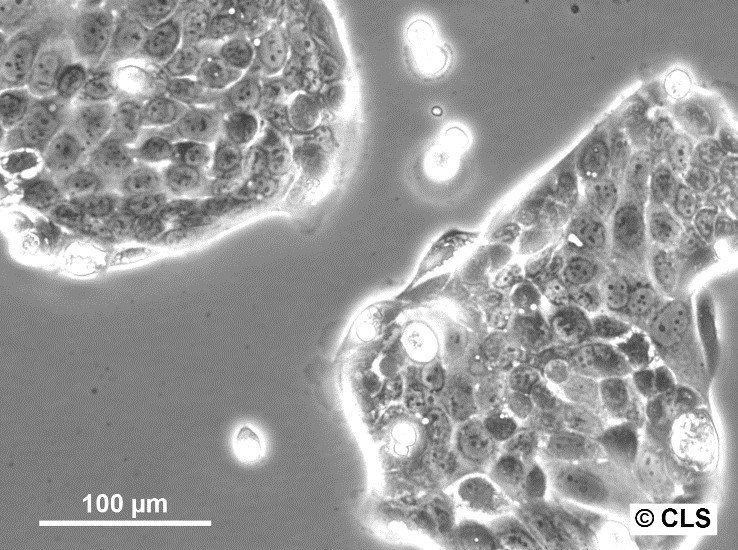
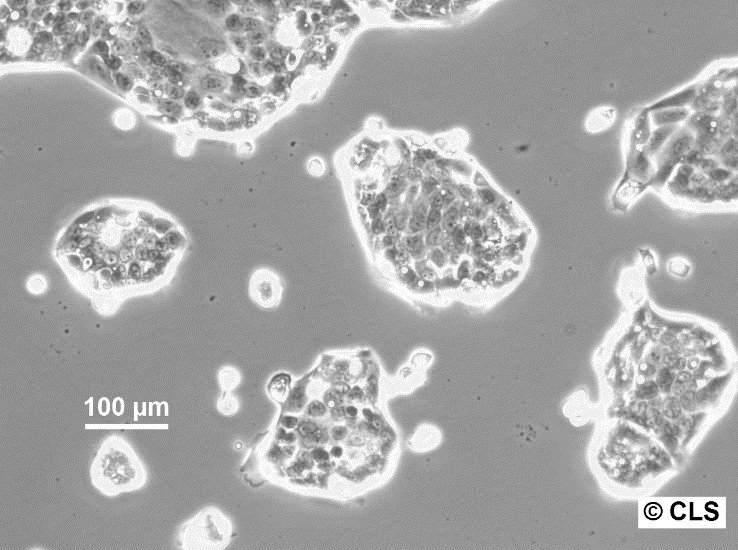
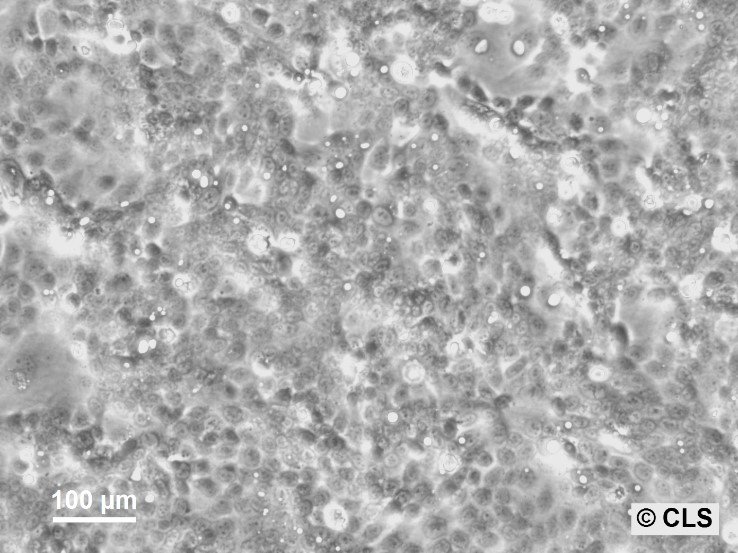
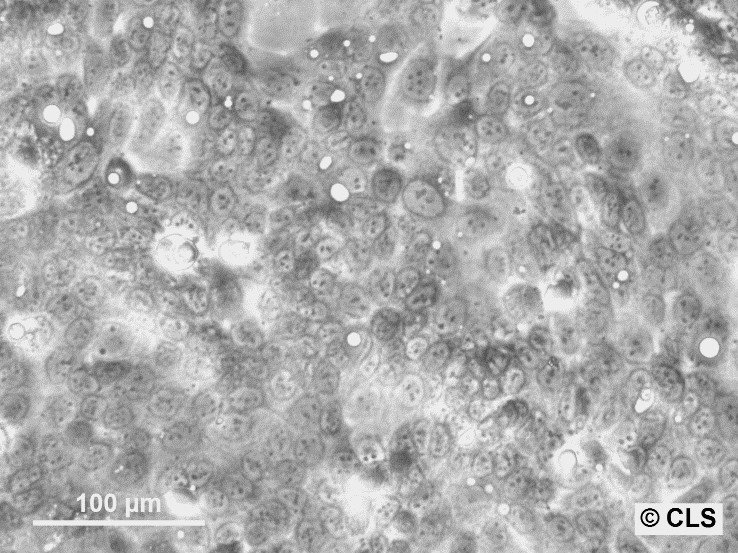












General information
| Description | The cells produce high levels of MUC-1 mucin mRNA, low levels of MUC-2 mRNA but do not express the MUC-3 gene. |
|---|---|
| Organism | Human |
| Tissue | Pancreas |
| Disease | Adenocarcinoma |
| Synonyms | CaPan-2, CAPAN-2, Capan 2, CAPAN 2, Capan2, CAPAN2 |
Characteristics
| Age | 56 years |
|---|---|
| Gender | Male |
| Ethnicity | Caucasian |
| Morphology | Polygonal |
| Growth properties | Adherent, colonies |
Identifiers / Biosafety / Citation
| Citation | Capan-2 (Cytion catalog number 300144) |
|---|---|
| Biosafety level | 1 |
Expression / Mutation
| Protein expression | p53 negative |
|---|---|
| Antigen expression | Blood Type B, Rh+ |
| Isoenzymes | Me-2, 2, PGM3, 2, PGM1, 1, ES-D, 1, AK-1, 1, G6PD, B, GLO-1, 2, Phenotype Frequency Product: 0.0004 |
| Tumorigenic | Yes, in nude mice. Forms well differentiated adenocarcinoma consistent with pancreatic carcinoma |
| Products | mucin (apomucin, MUC-1, MUC-2) |
| Ploidy status | Aneuploid |
| Mutational profile | Capan-2 cells carry a heterozygous Kras mutation in codon12: GGT>GTT |
Handling
| Culture Medium | McCoys 5a, w: 3.0 g/L Glucose, w: stable Glutamine, w: 2.0 mM Sodium pyruvate, w: 2.2 g/L NaHCO3 (Cytion article number 820200a) |
|---|---|
| Medium supplements | Supplement the medium with 10% FBS |
| Passaging solution | Accutase |
| Doubling time | 45 to 60 hours |
| Subculturing | Remove the old medium from the adherent cells and wash them with PBS that lacks calcium and magnesium. For T25 flasks, use 3-5 ml of PBS, and for T75 flasks, use 5-10 ml. Then, cover the cells completely with Accutase, using 1-2 ml for T25 flasks and 2.5 ml for T75 flasks. Let the cells incubate at room temperature for 8-10 minutes to detach them. After incubation, gently mix the cells with 10 ml of medium to resuspend them, then centrifuge at 300xg for 3 minutes. Discard the supernatant, resuspend the cells in fresh medium, and transfer them into new flasks that already contain fresh medium. |
| Split ratio | A ratio of 1:3 to 1:6 is recommended |
| Seeding density | 1 x 10^4 cells/cm^2 will result in a confluent monolayer within 7 days. |
| Fluid renewal | 2 to 3 times per week |
| Freezing recovery | After thawing, plate the cells at 5 x 10^4 cells/cm^2 and allow the cells to recover from the freezing process and to adhere for at least 48 hours. |
| Freeze medium | CM-1 (Cytion catalog number 800100) or CM-ACF (Cytion catalog number 806100) |
| Handling of cryopreserved cultures | Capan-2 cells are shipped in a deep-frozen state on dry ice. Upon receipt, confirm that the vial remains frozen. For storage, place the cryovial immediately at temperatures below -150 degrees. If you plan to culture the cells immediately, swiftly thaw the vial by shaking it in a 37 degrees water bath with clean water and an antimicrobial agent for 40-60 seconds. Remove the vial once a small ice clump persists, ensuring it remains cold. Proceed with all subsequent steps under aseptic conditions. In a sterile flow hood, disinfect the cryovial with 70% ethanol. Then, gently open the vial and transfer the cell suspension into a 15 ml centrifuge tube pre-filled with 8 ml of room temperature culture medium. Gently mix the cells. For cell separation, centrifuge at 300 x g for 3 minutes and dispose of the supernatant. Skipping centrifugation is optional, although any residual freezing medium should be removed after 24 hours. Resuspend the pellet gently in 10 ml of fresh culture medium and divide between two T25 culture flasks. Follow the subculture protocol for subsequent steps. |
Quality control / Genetic profile / HLA
| Sterility | Mycoplasma contamination is rigorously excluded using both PCR-based assays and luminescence-based mycoplasma detection methods. To ensure there is no bacterial, fungal, or yeast contamination, cell cultures are subjected to daily visual inspections. |
|---|---|
| STR profile |
Amelogenin: x,x
CSF1PO: 11,12
D13S317: 11,12
D16S539: 9,13
D5S818: 11,12
D7S820: 9,11
TH01: 9.3
TPOX: 8
vWA: 17
D3S1358: 17,18
D21S11: 31
D18S51: 13
Penta E: 11
Penta D: 13,15
D8S1179: 12,13
FGA: 21,24
|
| HLA alleles |
A*: 29:02:01
B*: 44:03:01
C*: 16:01:01
DRB1*: 07:01:01
DQA1*: 02:01:01
DQB1*: 02:02:01
DPB1*: 11:01:01
E: 01:03:02
|
Required products
One prominent application of McCoy's 5A Medium is its utilization in the culturing of human colon carcinoma cell lines. Specifically, it has been employed in the study of the leucine-rich repeat-containing G-protein-coupled receptor (LGR5) and its role in the metastasis of colon cancer. This medium has been effectively employed in the cultivation of several colon carcinoma cell lines, including HCT116, RKO, FET, CBS, HCT116b, and TENN, enabling researchers to delve deeper into the mechanisms underlying colon cancer metastasis.
In addition to its application in cancer research, McCoy's 5A Medium has proven to be indispensable in the study of osteoblasts. Researchers investigating the ion reactivity of calcium-deficient hydroxyapatite in standard cell culture media have utilized this medium to culture osteoblasts. This application has facilitated a better understanding of the interactions between osteoblasts and calcium-deficient hydroxyapatite, contributing to advancements in the field of bone research.
Notably, McCoy's 5A Medium was meticulously formulated by modifying the amino acids found in Basal Medium Eagle to provide optimal support for liver tumor cells. This enriched formulation enables its suitability for a diverse range of established cell lines, as well as primary cells, further enhancing its versatility and applicability in various research settings.
Moreover, McCoy's 5A Medium extends its biochemical and physiological effects beyond liver tumor cells. It has been successfully employed to support growth in primary cultures of bone marrow, skin, gingiva, kidney, omentum, adrenal, lung, spleen, rat embryo, and other cell types. This wide range of applications attests to the broad utility of McCoy's 5A Medium in supporting the growth and maintenance of various cell types for comprehensive biological research.
Formulation
This McCoy's 5A medium (modified) contains 3.0 g/L of Glucose, stable Glutamine, 2.0 mM of Sodium pyruvate, and 2.2 g/L of NaHCO3.
Quality control
pH = 7.2 +/
- 0.02 at 20-25°C.
Each lot has been tested for sterility and absence of mycoplasma and bacteria.
Maintenance
Keep refrigerated at +2°C to +8°C in the dark. Freezing and warming up to +37° C minimize the quality of the product.
Do not heat the medium to more than 37° C or use uncontrollable sources of heat (e.g., microwave appliances).
If only a part of the medium is to be used, remove this amount from the bottle and warm it up at room temperature.
Shelf life for any medium except for the basic medium is 8 weeks from the date of manufacture.
Composition
Components
mg/L
Inorganic Salts
Calcium chloride x 2H2O
132,46
Magnesium sulfate x 7H2O
200,00
Potassium chloride
400,00
Sodium chloride
6,460.00
Sodium dihydrogen phosphate x H2O
580,00
Other Components
D(+)-Galactose anhydrous
3,000.00
Glutathione (red.)
0,50
Bacto-Peptone
600,00
Phenol red
10,00
Amino Acids
L-Alanine
13,36
L-Arginine x HCl
42,10
L-Asparagine x H2O
45,00
L-Aspartic acid
19,97
L-Cysteine
24,24
L-Glutamine stable
326,61
L-Glutamic acid
22,10
Glycine
7,50
L-Histidine x HCl x H2O
20,76
L-Hydroxyproline
19,70
L-Isoleucine
39,36
L-Leucine
39,36
L-Lysine x HCl
36,50
L-Methionine
14,90
L-Phenylalanine
16,50
L-Proline
17,30
L-Serine
26,30
L-Threonine
17,90
L-Tryptophan
3,10
L-Tyrosine
18,10
L-Valine
17,60
Vitamins
p-Aminobenzoic acid
1,00
Ascorbic acid
0,50
D(+)-Biotin
0,20
D-Calcium pantothenate
0,20
Choline chloride
5,00
In biological research, the cryopreservation of mammalian cells is an invaluable tool. Successful preservation of cells is a top priority given that losing a cell line to contamination or improper storage conditions leads to lost time and money, ultimately delaying research results. Once the cells have been transferred from a cell growth medium to a freezing medium, the cells are typically frozen at a regulated rate and stored in liquid nitrogen vapor or at below -130°C in a mechanical deep freezer. The freeze medium CM-ACF enables cryopreservation of cells at below -130°C (or in liquid nitrogen), essentially eliminating the need for an additional, costly ultralow freezer and eliminating time-consuming and demanding controlled rate freezing processes. Simply collect the cells, aspirate the growth medium, resuspend in CM-ACF, transfer to a cryovial, and store the vial at below -130 °C.
Long shelf-life
CM-ACF is a serum-free, ready-to-use cryopreservation medium that can be stored in the refrigerator for up to one year.
Trusted by hundreds of researchers
Our advanced, serum-free cell freezing medium CM-ACF is a market-leading product in Germany and Europe and is distinguished by numerous publications involving hundreds of different cell lines worldwide. We tested it with more than 1000 cell lines from our proprietary cell bank.
Optimized serum-free ingredients
CM-ACF does not contain serum products. Serum-containing cryopreservation mediums have the disadvantage of fluctuating recovery rates and unclear composition. Since the composition and concentration of proteins and other biological components vary from batch to batch in serum, the reproducibility of experiments with cells that were frozen in a serum-containing medium may be compromised. As each component of CM-ACF is carefully defined, you can rest assured that cells always recover identically.
Contains DMSO, glucose, salts
Buffering capacity pH = 7.2 to 7.6
Universal
- even for stem cell preservation
All common cell lines can be frozen and thawed to yield many viable cells. Compared to standard media, the rate of recovery of even the most delicate cells is significantly higher. Using CM-ACF, we store over 1000 different cell lines with outstanding success.
Applications & Validation
The cells preserved in our CM-ACF freeze medium can be used for cell counting, viability and cryopreservation, cell culture, mammalian cell culture, gene expression analysis and genotyping, in vitro transcription, and polymerase chain reactions. Each batch's efficacy is evaluated using CHO-K1 cells. Each batch is tested for pH, osmolality, sterility, and endotoxins to ensure high quality.
In biological research, the cryopreservation of mammalian cells is an invaluable tool. Successful preservation of cells is a top priority given that losing a cell line to contamination or improper storage conditions leads to lost time and money, ultimately delaying research results. Once the cells have been transferred from a cell growth medium to a freezing medium, the cells are typically frozen at a regulated rate and stored in liquid nitrogen vapor or at below -130°C in a mechanical deep freezer. The freeze medium CM-1 enables cryopreservation of cells at below -130°C (or in liquid nitrogen), essentially eliminating the need for an additional, costly ultralow freezer and eliminating time-consuming and demanding controlled rate freezing processes. Simply collect the cells, aspirate the growth medium, resuspend in CM-1, transfer to a cryovial, and store the vial at below -130 °C.
Long shelf-life
CM-1 is a serum-containing, ready-to-use cryopreservation medium that can be stored in the refrigerator for up to one year.
Trusted by hundreds of researchers
Our advanced cell freezing medium CM-1 is a market-leading product in Germany and Europe and is distinguished by numerous publications involving hundreds of different cell lines worldwide. We tested it with more than 1000 cell lines from our proprietary cell bank.
Optimized ingredients
CM-1 does contain serum products. Serum-containing cryopreservation mediums optimally protect the cells whilst being frozen and have the advantage of high recovery rates. As CM-1 has been tested with a multitude of cell lines, you can rest assured that your cells always recover well.
Contains FBS, DMSO, glucose, salts
Buffering capacity pH = 7.2 to 7.6
Applications & Validation
The cells preserved in our CM-1 freeze medium can be used for cell counting, viability and cryopreservation, cell culture, mammalian cell culture, gene expression analysis and genotyping, in vitro transcription, and polymerase chain reactions. Each batch's efficacy is evaluated using CHO-K1 cells. Each batch is tested for pH, osmolality, sterility, and endotoxins to ensure high quality.
- A Gentle Alternative to Trypsin
Accutase is a cell detachment solution that is revolutionizing the cell culture industry. It is a mix of proteolytic and collagenolytic enzymes that mimics the action of trypsin and collagenase. Unlike trypsin, Accutase does not contain any mammalian or bacterial components and is much gentler on cells, making it an ideal solution for the routine detachment of cells from standard tissue culture plasticware and adhesion coated plasticware. In this blog post, we will explore the benefits and uses of Accutase and how it is changing the game in cell culture.
Advantages of Accutase
Accutase has several advantages over traditional trypsin solutions. Firstly, it can be used whenever gentle and efficient detachment of any adherent cell line is needed, making it a direct replacement for trypsin. Secondly, Accutase works extremely well on embryonic and neuronal stem cells, and it has been shown to maintain the viability of these cells after passaging. Thirdly, Accutase preserves most epitopes for subsequent flow cytometry analysis, making it ideal for cell surface marker analysis.
Additionally, Accutase does not need to be neutralized when passaging adherent cells. The addition of more media after the cells are split dilutes Accutase so it is no longer able to detach cells. This eliminates the need for an inactivation step and saves time for cell culture technicians. Finally, Accutase does not need to be aliquoted, and a bottle is stable in the refrigerator for 2 months.
Applications of Accutase
Accutase is a direct replacement for trypsin solution and can be used for the passaging of cell lines. Additionally, Accutase performs well when detaching cells for the analysis of many cell surface markers using flow cytometry and for cell sorting. Other downstream applications of Accutase treatment include analysis of cell surface markers, virus growth assay, cell proliferation, tumor cell migration assays, routine cell passage, production scale-up (bioreactor), and flow cytometry.
Composition of Accutase
Accutase contains no mammalian or bacterial components and is a natural enzyme mixture with proteolytic and collagenolytic enzyme activity. It is formulated at a much lower concentration than trypsin and collagenase, making it less toxic and gentler, but just as effective.
Efficiency of Accutase
Accutase has been shown to be efficient in detaching primary and stem cells and maintaining high cell viability compared to animal origin enzymes such as trypsin. 100% of cells are recovered after 10 minutes, and there is no harm in leaving cells in Accutase for up to 45 minutes, thanks to autodigestion of Accutase.
In summary
In conclusion, Accutase is a powerful solution that is changing the game in cell culture. With its gentle nature, efficiency, and versatility, Accutase is the ideal alternative to trypsin. If you are looking for a reliable and efficient solution for cell detachment, Accutase is the solution for you.
Phosphate-buffered saline (PBS) is a versatile buffer solution used in many biological and chemical applications, as well as tissue processing. Our PBS solution is formulated with high-quality ingredients to ensure a constant pH during experiments. The osmolarity and ion concentrations of our PBS solution are matched to those of the human body, making it isotonic and non-toxic to most cells.
Composition of our PBS Solution
Our PBS solution is a pH-adjusted blend of ultrapure-grade phosphate buffers and saline solutions. At a 1X working concentration, it contains 137 mM NaCl, 2.7 mM KCl, 8 mM Na2HPO4, and 2 mM KH2PO4. We have chosen this composition based on CSHL protocols and Molecular cloning by Sambrook, which are well-established standards in the research community.
Applications of our PBS Solution
Our PBS solution is ideal for a wide range of applications in biological research. Its isotonic and non-toxic properties make it perfect for substance dilution and cell container rinsing. Our PBS solution with EDTA can also be used to disengage attached and clumped cells. However, it is important to note that divalent metals such as zinc cannot be added to PBS as this may result in precipitation. In such cases, Good's buffers are recommended. Moreover, our PBS solution has been shown to be an acceptable alternative to viral transport medium for the transport and storage of RNA viruses, such as SARS-CoV-2.
Storage of our PBS Solution
Our PBS solution can be stored at room temperature, making it easy to use and access.
To sum up
In summary, our PBS solution is an essential component in many biological and chemical experiments. Its isotonic and non-toxic properties make it suitable for numerous applications, from cell culture to viral transport medium. By choosing our high-quality PBS solution, researchers can optimize their experiments and ensure accurate and reliable results.
Composition
Components
mg/L
Inorganic Salts
Potassium chloride
200,00
Potassium dihydrogen phosphate
200,00
Sodium chloride
8,000.00
di-Sodium hydrogen phosphate anhydrous
1,150.00

